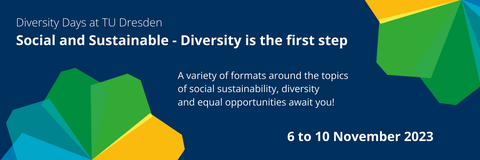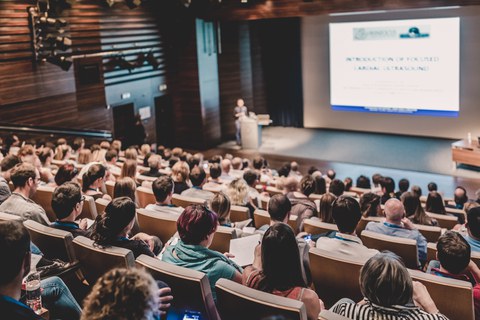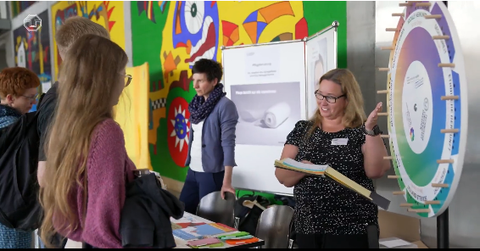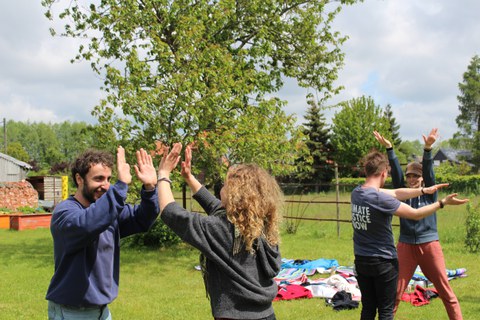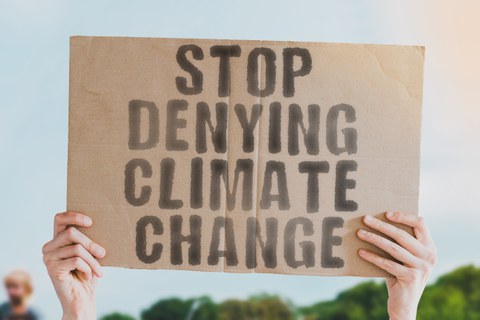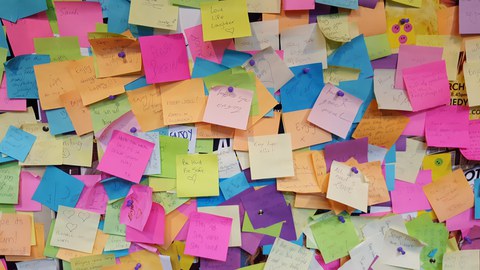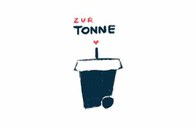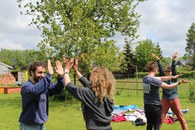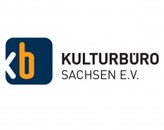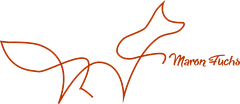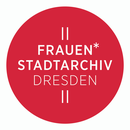Social & Sustainable: Diversity is the first step
The Diversity Days will take place again this year in the week from 6 to 10 November 2023 under the motto Social and Sustainable - Diversity is the first step. With a wide range of cooperation partners, we are focusing on one dimension of sustainability, social sustainability. Alongside ecological and economic sustainability, it is a cornerstone for the future development of our society.
Table of contents
Social Sustainability
Social sustainability puts people and their needs at the centre of a holistic approach to sustainability. The United Nations (UN) specifically highlights socially sustainable goals in the Sustainable Development Goals (SDGs):
- No Poverty - End poverty in all its forms and everywhere.
- No Hunger - End hunger, achieve food security and better nutrition and promote sustainable agriculture.
- Health and well-being - Ensure healthy lives for all people of all ages and promote their well-being.
- Quality education - Ensure inclusive, equitable and quality education and promote lifelong learning opportunities for all.
- Gender equality - Achieve gender equity and empower all women and girls.
(It should be noted that gender is diverse and cannot be represented in any binary system. Therefore, we consider gender equity as equal rights for all genders). - Decent work and economic growth - Promote sustained, inclusive and sustainable economic growth, full and productive employment and decent work for all.
(It should be noted that there are many anti-growth positions that see ecological and socially just resource use as impossible under economic growth conditions. Further information can be found here).
Sustainable TU Dresden
In addition to research on issues of ecological sustainability and advancement of knowledge and skills through sustainable education, TU Dresden also set up an environmental management system according to EMAS in 2003. It collects key parameters of university operations in pursuit of the goal to continuously reduce our environmental impact.
Different projects are being conducted to prepare our campus for the future and to make students’ and employees’ everyday university life at TU Dresden more sustainable. The structural and organizational preconditions for long-term sustainable development at TU Dresden have been established. Numerous stakeholders are working together to actively shape the various aspects of sustainability at the university (Strategies & Organization). The university community is actively involved in the manifold elements of sustainability – students and staff can work together in various teams, university groups and projects to ensure and foster sustainability at TU Dresden (Contribute).
Program
Monday, 6th November 2023
Can a climate-friendly diet also be cheap? We want to answer this question in our workshop and take a critical look at the four dimensions of sustainable nutrition - ecological, economic, social and health-related. We will give you tips and tricks on how to lead a healthier and more sustainable life in small steps and how to make a difference on a large scale.
What research questions do different disciplines discuss around the topic of social sustainability? In this format, we want to focus on different speakers and their topic-related research. There will be various short presentations that will show the audience the diversity of topics around social sustainability.
The following Get TUgether will be framed by music from Prof. Dr. Stefan E. Schmidt and Dr. Line Nadege Maffeu Nzoda. They perform mucial diversity as a good example of how a fruitful cultural exchange may inspire global unity.
Programme
Rieke Borges, Sabine Marr
How can we live sustainably? Feminist and alternative-economic theses
MultiRural, Leibnitz Institute of Ecological Urban and Regional Development
The lecture shows how closely sustainable housing is linked to social and environmental issues. Feminist and alternative economic perspectives will be used to suggest solutions for sustainable housing. Initial findings from the research project "MehrLand" of the Leibnitz Institute of Ecological Urban and Region al Development (IOER) will be presented.
Dr.in Anna Görner
Global Learning for a Sustainable Future: Focus on Diversity, Ecology and Social Responsibility
CIPSM - Centre for International Postgraduate Studies of Environmental Management
The continuing education programme with a focus on ecological sustainability for decision-makers from the Global South, which CIPSEM runs at the TU Dresden with the support of the German Federal Ministry for the Environment, UNEP and UNESCO, will be presented. Diversity is a core element of the teaching concept. With a focus on diversity, 21 participants from 21 different countries are selected for each course. Through the diversity of regions of origin, professional backgrounds and other facets, participants can train to act in complex contexts when solving environmental challenges. The integration of courses on community engagement, empowerment, gender and governance enables a holistic view of environmental and social sustainability. In this context, we provide insights into course design and formats that aim to promote social sustainability.
Dr.in Rachel Bowden
Education and Sustainability: What's language got to do with it?
Centre for Teacher Education and educational Research
This lecture will present impulses from research and practice in language and sustainability education. Teachers and educators in European universities and schools need to address language ideologies and practices in order to create an "inclusive, quality education for all". This is the only way to enable the necessary transformation of education.
Dr. Manès Weisskircher
Right-wing extremism versus climate protection? Nationalist opposition in a transnational policy field
Right-wing populism and climate policy are two of the most relevant contemporary political phenomena, but they are usually treated separately in the social sciences. The BMBF junior research group REXKLIMA links both topics. In doing so, the project " Right-wing extremism versus climate protection? Nationalist Opposition in a Transnational Political Field " is based at the Institute of Political Science at the TU Dresden and the Hannah Arendt Institute for Research on Totalitarianism and asks the question: How and why do right-wing populist and right-wing extremist parties mobilise around the issue of climate change?
Chair of Social and Health Care Buildings and Design
Social sustainability on campus - inspiration from architecture students
Chair of Social and Health Care Buildings and Design
Students in the subject "Inclusion in Architecture" were given the task in the exercise "Campus Life" to deal with an inclusive idea that they encounter in everyday life on campus. This could include a wide variety of aspects: a project of the TU Dresden, a structural solution, direct support from people and much more. Additions to the idea of inclusion or a new inclusive solution for the campus could also be developed. In the lecture, a summary of the most interesting contributions of the students will be presented.
Dr.in Maren Hachmeister
Age and digital change. Experiences of older volunteers with voluntarism, age and digitalisation from the post-reunification period to the Corona pandemic (1980-2023)
Hannah Arendt Institute for Totalitarianism Studies
The research project "Age and digital change. Experiences of older volunteers with voluntarism, age and digitalisation from the post-reunification period to the Corona pandemic (1980-2023)" is dedicated to the digital participation of older people in the field of social engagement and the question of whether and how they can become pioneers and innovators of digital change. From the post-reunification period to the end of the Corona pandemic, volunteers had to reinvent themselves and their engagement several times. These times of biographical transformation will now be researched in more detail over the next three years (2023-2026). The project will use focused narrative and life history interviews to shed light on how older people organise knowledge transfer and innovation digitally and to what extent they use their engagement to free themselves from situations of social isolation. Older people's experiences with voluntarism, age and digital technologies should thus become visible as resources for shaping social engagement and as a contribution to social cohesion as a whole. The project will be located at HAIT in the research field "Transformation Research in an International Comparative Perspective" and inscribes itself in HAIT's digital strategy.
Dagmar Karisch-Gierer
Women's networks in male-dominated industries - success factors and challenges
The Forestry Women-the Network
It is a sign of the times that more and more women are working in forestry. Nevertheless, they still have a special status in the "green man's world" - if they are visible at all. The association wants to highlight the achievements and activities of women in the forestry and timber industry and make these women visible, both in professional circles and to the non-forestry public. Not only the women themselves benefit from this positive effect, but also our forest and the entire forestry and timber industry. The forestry women network women (and also men who actively support the idea of the association) from all areas of the forestry and timber industry.
Tuesday, 7th November 2023
As Diversity Management, we want to get into conversation with you about the core dimensions of diversity and inclusion at the TU and see how these are influenced by questions of social sustainability.
We are supported by the FrauenUmweltNetzwerk* (). Their focus is on raising awareness of the difficulties FLINTA people* face in everyday university life (both in studies and at work). Together with you, they want to discuss these, look for solutions together and find or develop possibilities for action.
Join us at the Diversity Wheel of Fortune in the foyer of the Old Mensa. Exciting and interesting quiz questions await you as well as a few small prizes!
*FLINTA* is a German abbreviation that stands for "Frauen, Lesben, Intergeschlechtliche, nichtbinäre, trans and agender", meaning women/females, lesbians, intersex, non-binary, trans and agender people.
What if there was a formula to save the world? What if each of us could contribute? It is clear that existing approaches are often not enough to inspire a broad section of the population and move them to action. The film shows experts and visits projects and initiatives around the world that pursue alternative ecological, economic and socially sustainable ideas. What we will find are answers to the most urgent questions of our time. And the certainty that there can be a different story for our future.
TOMORROW - DIE WELT IST VOLLER LÖSUNGEN | Trailer deutsch german [HD]
You can find more information about the film here.
Wednesday, 8th November 2023
As the climate crisis is advancing, we need even more strongly the ability to prefigure different futures gets more urgent. This workshop delves into the complexity and multifaceted nature of climate injustice, addressing five essential dimensions: class, race, gender, ability, and age. Social issues are often set in opposition to ambitious climate protection, leading to artificial conflicts between the two. However, we believe that in order to effectively tackle the climate crisis and bring about meaningful change in society, we must not view climate protection solely as a technical endeavour; instead, we must account for its social dimensions. But what does this mean in practical terms?
We couple the dimensions of climate justice with concrete building blocks that help us re-imagine societies where climate justice has become a lived reality. In the workshop, we navigate between in-depth group work, interactive impulses from the facilitators, movement, inspiring plenary discussions, and creative problem-solving. We engage in alternative ways of thinking and envisioning what a climate-just coexistence could look like, both locally and globally. Join us to discuss, ask further questions, and collaboratively work on solutions!
How can we all counter anti-human and climate change denying statements in the current time? These are the questions addressed by the workshop of the Complaints Office of the TU Dresden in cooperation with the Kulturbüro Sachsen e.V. You can expect information on strategies for action and argumentation as well as the discussion of case ball games. The aim is to develop an individual positioning and action strategy for dealing with critical and rejecting voices.
Thursday, 9th November 2023
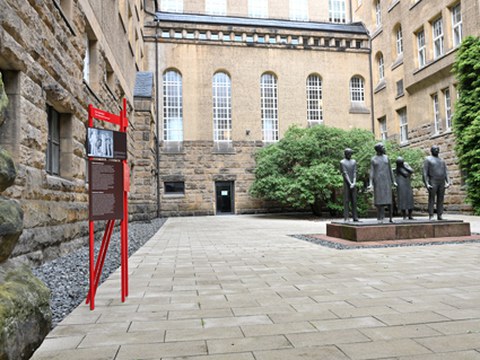
Station Gedenkhof, Foto: Schneider/Schwalbe
The night of 9 to 10 November 1938, Jewish synagogues burned all over Germany, including in Dresden. Many Jewish shops were set on fire and looted, and Jewish citizens were arrested. On the occasion of the 85th anniversary of the Night of Broken Glass, four moving and informative guided tours will take place in cooperation with the Münchner Platz Memorial.
Among Saxony's memorials, Münchner Platz Dresden, is one of the sites with a double history. The memorial examines politicised criminal justice and its victims in the building complex on Münchner Platz during the National Socialist dictatorship, the Soviet occupation and the early years of the German Democratic Republic.
Guided tours
- 11:00 AM: Overview tour of the permanent exhibition (90min, in English)
Our team will accompany you through the memorial area and the permanent exhibition "VERURTEILT. INHABITED. HINGERICHTET. Political Justice in Dresden 1933-1945 || 1945-1957" at the memorial site. The use of the former justice complex on Münchner Platz during the National Socialist dictatorship as well as under the Soviet occupation and in the early GDR is explained.
to the event - 01:00 PM: The historical place: Paths of a Prisoner (60min, in German)
The tour leads along the paths of a prisoner through the former justice buildings - remand prison, courthouse and place of execution. The biography of Herbert Blochwitz (1904-1944) and his various stations at Münchner Platz are used to illustrate how Nazi criminal justice functioned.
to the event - 02:00 PM: Tour of the permanent exhibition with a focus on Nazi criminal justice (90min, in German)
Our team will accompany you through the memorial area and the permanent exhibition "VERURTEILT. INHABITED. HINGERICHTET. Political Justice in Dresden 1933-1945 || 1945-1957" at the memorial site. The use of the former justice complex on Münchner Platz during the National Socialist dictatorship as well as under the Soviet occupation and in the early GDR is explained.
to the event - 03:00 PM: Tour of the former justice complex at Münchner Platz (90min, in German)
Our team will accompany you through the memorial area and the permanent exhibition "VERURTEILT. INHABITED. HINGERICHTET. Political Justice in Dresden 1933-1945 || 1945-1957" at the memorial site. The use of the former justice complex on Münchner Platz during the National Socialist dictatorship as well as under the Soviet occupation and in the early GDR is explained.
to the event
- Are you interested in sustainability and would like to promote it at TU Dresden, in your faculty, in your subject area or even in your student council or university group, but don't know how to start?
- You would like to talk to colleagues and fellow students about sustainability and sustainable work and life, but you are facing challenges?
- Would you like to know where you can find information and would you like to network more to promote the topic and get to know fellow campaigners?
The Green Office offers this event to address these issues with you and to facilitate mutual support. What could be your starting points and possibilities to motivate your institution or your committee to be more sustainable? What are contact points at the university and how can you support each other?
In the first part, we would like to give you an introduction to the efforts and current plans of the TU Dresden in terms of sustainability and we want you to get to know each other.
In the second session, we want to take a closer look at sustainability communication and framing. For this purpose, we have invited experts from Psychologist4Future who will show you how to talk positively about this topic with your colleagues and students and motivate them to do more for sustainability at the TUD.
Please take part in both dates.
Target group: This course was specifically designed for people who want to act as multipliers in their institution, in TU Dresden and in their committee. This course is intended to be a prelude to networking with each other as sustainability ambassadors, to support each other and to be accompanied by us.
Dates:
- 09.11.2023, 09.30 - 12.00
- 23.11.2023, 08.30 - 15.00
Registration: via OPAL
Learn about the UN's Sustainable Development Goals (SDGs) and find out about technologies that can help us get closer to these goals.
Intended as a lunch break with a sustainability agenda, the TUD briefing on SDG Campus participation opportunities is aimed at TUD teachers who would like to find out more about the SDG Campus in order to get involved in perspective.
TUD takes on SDG 9 sponsorship at the SDG Campus. Technology-oriented teaching-learning offers on infrastructure, industry and innovation are welcome on the platform. Corresponding participation options will be presented and discussed in a relaxed exchange.
The event is organised by the Centre for Interdisciplinary Learning and Teaching (ZiLL) and the Green Office.
You can find all information on registration and access to the event here.
Education that enables people to shape their thoughts and actions in a sustainable way is central to sustainable development. The consequences of one's own behaviour for the world are made tangible, enabling people to make decisions that are responsible and in line with sustainable development.
In this 1.5 hour crash course, you as a teacher will be enabled to understand the basics of the educational concept of ESD, learn about good practice examples and methods and be presented with further materials.
In this way, you will be prepared to integrate sustainability into your subject teaching, both didactically and in terms of content.
PLACE: SE2/203/U, Seminargebäude 2, Zellescher Weg 20 (CampusNavigator)
The Public Climate School will also take place nationwide from 20 - 24 November. If you - e.g. with the knowledge from the crash course - would like to redesign your own course during this week on the topic of climate or (social) sustainability, integrate this topic and open it up to other students, we would be happy to include them in this overview: Simply contact us at: .
Creative writing, first steps on stage, strong rhetoric and lived creativity - all this comes with a poetry workshop!

Maron Fuchs
The workshop with author, slam poet and teacher Maron Fuchs offers you variety and unforgettable moments. Last but not least, thanks to helpful information blocks and individual feedback, the participants can develop important skills and abilities, from expression and presentation to more self-confidence in their overall appearance.
Why Poetry Slam?
Poetry slam is a great way to put thoughts into words and share them with other people. The workshop is not specifically aimed at the requirements of the poetry slam, but opens up the world of creative writing for the participants in general.
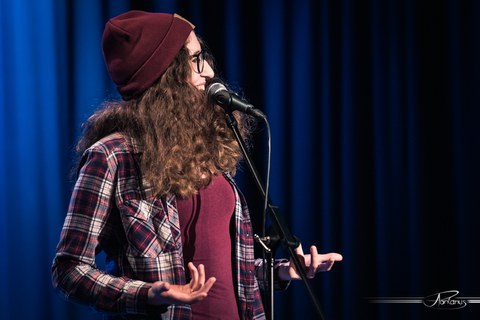
Maron Fuchs
- Opportunity for self-reflection
- Training of the linguistic Expression
- Rhetorical training
- Reduction of the fear of speaking in front of other (foreign) people.
- Enjoyment of language, text and performance
Contents of the workshop
- Writing texts: What about? And how?
- Reflecting on texts: What can be improved?
- Performing texts: How can you use voice, facial expressions and body language?
- Putting texts on stage: Performance possibilities?
Friday, 10th Novemebr 2023
TU Dresden has been organising the Diversity Days for 10 years now. During this time, the most diverse dimensions of diversity and inclusion have been considered. Your participation has always been invaluable.
With a participatory action, we would like to develop an idea together with you of what diversity and inclusion mean for us as a university today and in the future. We will take a look back and create a vision for tomorrow.
We are supported by foodsharing e.V.
On 10 November 2023, a symposium entitled "Hope in the Climate Crisis - Artificial Intelligence in the Context of Ecological Sustainability and Social Responsibility" will be held at the Motorenhalle Dresden.
It is important to us that all participants feel comfortable during the Diversity Days and experience the framework conditions as supportive. In addition to accessible rooms, this also includes improving accessibility in a broader sense - with foresight and on an individual basis.
If you have individual needs in terms of mobility, ergonomics, vision, hearing, communication or family requirements, please do not hesitate to contact us. We want to make your participation in the format as pleasant as possible.
We look forward to welcoming you to the events together with our cooperation partners!
Our cooperation partners
Further notes
- The information on data protection can be found in the corresponding information sheet ,,Data protection statement on the processing of personal data/information obligations according to DSGVO".
- "Funded by the Federal Ministry of Education and Research (BMBF) and the Free State of Saxony within the framework of the Excellence Strategy of the Federal Government and the Länder".

